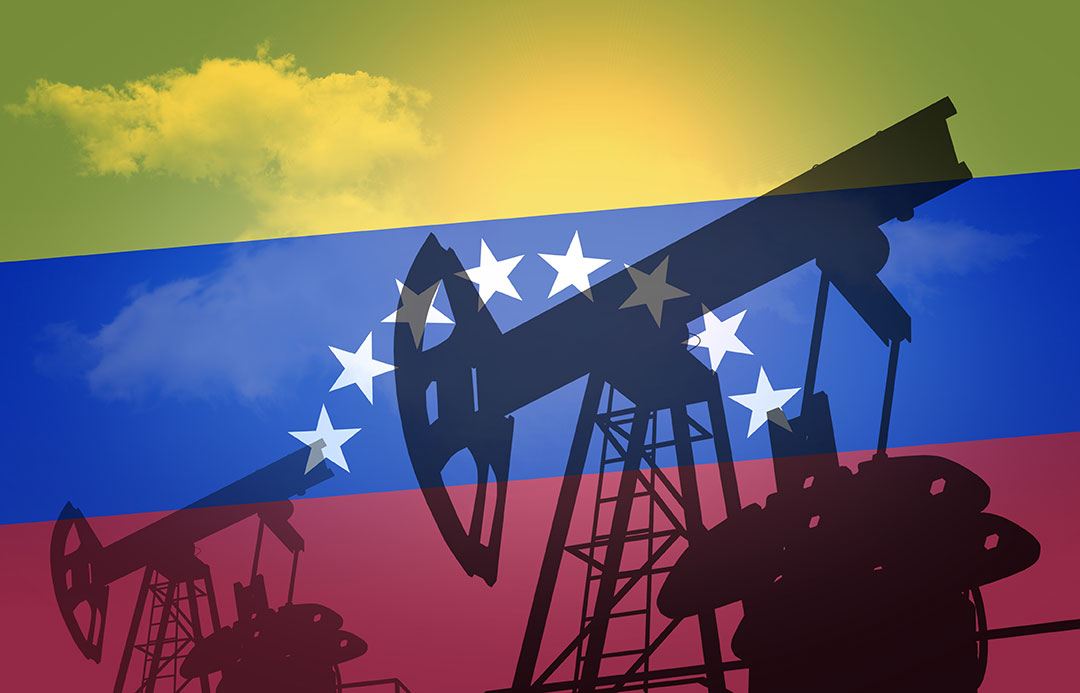Ceiling on Venezuela's Oil Output Growth Expected as U.S. Oil License Expires
(Reuters) — The expiration of the widest U.S. license so far granted to Venezuela's oil and gas industry will put a ceiling on the South American country's slow crude production growth unless Washington grants enough individual authorizations to compensate, according to analysts and experts.
Washington officials said on Wednesday the license would not be renewed. A 45-day license was issued by the U.S. Treasury Department for energy firms to wind down transactions with Venezuela. Companies also are welcome to submit requests for specific authorizations.
The move follows weak progress by President Nicolas Maduro and his representatives to implement a roadmap towards a competitive election in Venezuela this year, the U.S. said, showing worry over repression in Venezuela and the impossibility for the opposition to register its chosen candidate.
Oil Minister Pedro Tellechea said on Wednesday state energy company PDVSA has "a big strength in trading" for overcoming any scenario. "We are prepared commercially (to any sanction reimposition). Logistically, we will continue producing".
Growth Cut Short
The license had allowed Venezuela's state oil company PDVSA in the last six months to recover a portion of its lost crude output, reaching 874,000 barrels per day (bpd) in March, and expand production capacity by adding two drilling rigs at the country's main producing region, the Orinoco Belt.
Also helped by individual authorizations to U.S and European oil firms, Venezuela expanded exports to pre-pandemic levels of around 900,000 bpd, improved cash flow and secure imports of diluents for crude production and fuels to avoid another wave of domestic scarcity.
Individual licenses are expected to remain in force and new ones for specific transactions could be issued, the U.S. said, but without the widest authorization a planned 35% growth in oil production to 1.2 million bpd through the end of 2025 is now expected to be shorter.
"Oil output will lose force," said Caracas-based consultancy Sintesis Financiera in a report this week, referring to a scenario without a wide license allowing exports of Venezuela's oil to its chosen clients, which will cut short the production growth to about 980,000 bpd by the end of next year.
Weaker Finances
Experts also expect that lower revenues coming from the combination of stagnant oil sales, the return of price discounts and the need for intermediaries will weaken PDVSA's finances and the central bank's ability to avoid further devaluation, leading to accelerated inflation.
They noted, however, that individual licenses to the oil sector can provide some relief in the coming months.
A large list of oil and gas companies have in recent years requested specific licenses from the U.S. Treasury Department to do business with Venezuela, including for trans-bordering gas projects, oil area expansions and investments that could ramp up revenue. But most of them remain unattended.
Venezuela's possible re-approach to political allies Iran and Russia, especially for oil trading and shipping, could also help it ease the effect of reimposing the U.S. sanctions, first imposed in 2019, analysts have said.
But the "most catastrophic collapse" of PDVSA's operations and finances began years before the U.S. first imposed sanctions in Venezuela, noted Francisco Monaldi, director of the Latin American Energy Program of Rice University's Baker Institute.
Any recovery is not expected to be fast and amid though sanctions the effort will be even harder, the analysts said.
Related News
Related News

- Keystone Oil Pipeline Resumes Operations After Temporary Shutdown
- Freeport LNG Plant Runs Near Zero Consumption for Fifth Day
- Biden Administration Buys Oil for Emergency Reserve Above Target Price
- Mexico Seizes Air Liquide's Hydrogen Plant at Pemex Refinery
- Enbridge to Invest $500 Million in Pipeline Assets, Including Expansion of 850-Mile Gray Oak Pipeline





Comments